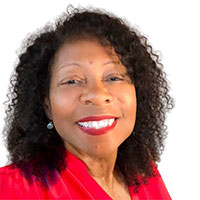MPG Consulting Presents:
Culturally and Racially Attuned CEU Credits
For Individuals and Organizations
Course Title: Clinical Social Work With Adolescents
Subject/Topic: Social work Theory and Practice in Clinical Interventions
Name and Qualifications of the Presenter:
Warren C. Lyons, LCSW, is a licensed Clinical Social Worker. He has worked in a variety of social work, mental health and academic venues as a Clinical practitioner, Clinical Supervisor, Program Supervisor and Program Director. He is SIFI Credentialed and has taught and supervised social Work students from most of the major Schools of Social Work in the New York Metropolitan area. Mr. Lyons has received certification in the areas of advanced family treatment. He has taught clinical professionals in the areas of Family Treatment, Clinical Treatment of the Adolescent. He has served as Adjunct Professor, instructing, supervising and mentoring students involved in the study of social work theory and practice. He has supervised and directed professionals in milieu, school-based, and out-patient clinic settings and Preventive Services venues. He has instructed Social Work professionals on behalf of the National Association of Social Workers, in New York City, N.Y., on the subject of Clinical Work with Adolescents and Their Families.
Title and Description of Course:
SHAME, BLAME and PAIN – Negotiating the Challenges Faced By Adolescents, and Why They Pose Such Difficulty For the Clinical Practitioner
Session One and Two:
Participants will understand the importance of developing a conceptual framework for engagement of clients around recognizing and distinguishing between nuanced, but qualitatively distinct categories of pain or emotional discomfort
- Emotional pain
- Psychological pain
- Physical pain
- Existential pain
- Alienation and loneliness
- Despair
Session Three and Four: You Can’t Talk Clearly About It If You Can’t Think Clearly About It”–
It is often taken for granted that clinicians are particularly adept at helping adolescents navigate the difficult territory of “emotional learning”, however, this is not always the case. It is, for clinician and clients alike, often the most challenging aspect of clinical work. Stress is frequently placed on the “observable and measurable” features of assessment and treatment, with less attention accorded the questions surrounding genuine engagement with the client—including the question of what engagement at the level of treatment actually involves.
- The nuances of profound feelings, thoughts and experiences often present genuine challenges for adolescents and clinicians alike.
- For some clinicians, the outward expressions of the difficulty a client experiences in exploring realms of thoughts and feelings are often times shrugged off as “resistance”. This is not necessarily so. More often we may be encountering the adolescent’s difficulty in negotiating the nuances of language as well as the compelling forces of the feelings and thoughts. For example, “It was boring”, may be a frequent adolescent response when questioned about having not followed through on a task or expectation. When we encourage the adolescent to think or “talk through” a matter, we may, inadvertently, take for granted the difficulty this may pose for the client. Of course these areas involve powerful , abstract feelings or experiences that are difficult to articulate such as guilt; grief; despair; loss; cruelty; longing; regret; disappointment; “cowardice”; fear, sorrow; rage.
Learning Objectives and Teaching Methods:
Learning to “sit” with an adolescent, enduring such moments of difficulty and pain, without judgment, while helping to decode the “language of behavior and feelings” in a meaningful and authentic manner, will be a centerpiece of our work. The use of relevant music, film and writing for self expression will be employed as tools for fostering the capacity for “sitting with” difficult feeling states and experiences. Participants will explore the use of writing for self expression and will experience certain aspects of a therapeutic support group.
Time Frame:
The course will convene for two hours each of four weeks for a total of 8 hours. The course will provide 8 contact hours.
Location: YWCA, 500 West 56th St. Ground Floor, New York, NY 10019
Dates and times: Tu 1/12/16 9-11 a.m., Th 1/14/16 9-11 a.m., Tu 1/19/16 9-11 a.m., Th 1/21/16 9-11 a.m.
To sign up for this course, click here.




